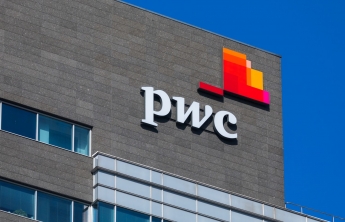PricewaterhouseCoopers (PwC) has disclosed that Small and Medium Enterprises (SMEs) in the country face an estimated N617.3 billion financing gap annually which accounts for less than one per cent of banks’ credit in 2018.
Esiri Agbeyi, Partner and Lead, Private Wealth Services, PwC Nigeria, stated this while presenting the result of a survey of Micro, Small and Medium-scale Enterprises (MSMEs) in Nigeria.
The report titled: “PwC’s MSME Survey 2020- Building to last”, further stated that besides obtaining finance, finding customers and infrastructure deficits also accounted for the top of the most pressing problems for small businesses, while generating electricity constituted the biggest cost to the MSMEs.
Agbeyi noted in the presentation at a webinar hosted by the firm for MSMEs on Managing the Impact of COVID-19 and Repositioning Your Business for Growth that obtaining finance (22%), finding customers (16%) and infrastructure deficits (15%) were identified as most pressing problems.
He said that 21 per cent of the respondents identified electricity as being responsible for the highest cost to their daily operations, followed by rent (17%) and cost of capital and employee cost at 15 per cent and 14 per cent respectively. He said:
“Access to finance, in particular credit, is a critical enabler for the growth and development of small and medium enterprises.
The SME credit market, however, is notoriously characterised by market failures and imperfections. We estimate the financing gap for Nigerian MSMEs to be about N617.3 billion annually (pre-COVID-19 pandemic).
More so, based on our analysis of data from the CBN annual statistical bulletin, small businesses accounted for less than one per cent of total commercial banking credit in 2018.
We also see that electricity accounts for the biggest costs to the daily operations of MSMEs. Nigeria’s power sector is overwhelmed by a myriad of challenges that have culminated in inadequate electricity supply.
This has an adverse impact on the business environment in Nigeria; consequently, contributing to significant economic costs to SME and economic growth. The International Monetary Fund (IMF) states that the lack of access to reliable electricity costs the Nigerian economy an estimated USD29 billion a year.”
The survey also found that the foremost economic issue affecting small businesses is the pressure to reduce prices (22%). This is followed by rising inflation (19%) and low demand for products/services (16%).
The economic recovery in Nigeria has been tepid. On tax matters, MSMEs find local government levies (28%) the most difficult tax to comply with. This is closely followed by Company Income Tax (CIT) at 26 per cent and Value Added Tax (VAT) at 25 per cent.









